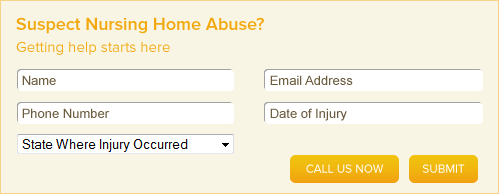Search
Court Slashes Nursing Home Negligence Verdict
 In June 2014, the justices of the West Virginia Supreme Court slashed the $90 million verdict awarded to Dorothy Douglas in her Charleston nursing home abuse case. Even though the justices called the conduct of the nursing home “reprehensible,” the estate of Ms. Douglas was awarded $32 million instead. When ruling on the nursing home negligence verdict, it was the justices’ claim that the nursing home placed corporate profits ahead of the needs of the Charleston residents.
In June 2014, the justices of the West Virginia Supreme Court slashed the $90 million verdict awarded to Dorothy Douglas in her Charleston nursing home abuse case. Even though the justices called the conduct of the nursing home “reprehensible,” the estate of Ms. Douglas was awarded $32 million instead. When ruling on the nursing home negligence verdict, it was the justices’ claim that the nursing home placed corporate profits ahead of the needs of the Charleston residents.
In an opinion by Chief Justice Robin Davis, claims were made that the nursing home owners denied authorization of using additional staff to ensure basic life-sustaining requirements were met for the plaintiff and all of the nursing home residents. It was Justice Davis’ opinion that the residents in the Charleston nursing home are West Virginia’s “most vulnerable” citizens.
A Duty to Provide Care
In 2011, jurors heard evidence in the Kanawha County courtroom in a trial presided by Judge Paul Zakaib, lasting almost two weeks. Jurors concluded that the Heartland of Charleston nursing home failed in their duty to provide care and feed Ms. Douglas, who was a resident for approximately three weeks.
The jurors awarded $11.5 million to the estate of Ms. Douglas and her son along with punitive damages of $80 million. The nursing home lawyers argued that the case should have been subject to West Virginia’s medical malpractice caps for all claims alleged against the Charleston nursing home and its staff. The state’s Medical Professional Liability Act (MPLA) limits the financial compensation to $500,000 or less for any non-economic damage awarded to lawsuit plaintiffs involved in medical malpractice cases.
However, a ruling by the judge in the case indicated that only a small amount of the nursing home negligence verdict should be subject to West Virginia’s medical malpractice caps. As a result, Judge Kakaib reduced the jurors’ award of $91.5 million to approximately $90.5 million, prior to an appeal before the higher court.
Compensatory and Punitive Damages Award
The West Virginia Supreme Court justices ruled 4 to 1 to reduce compensatory and punitive damages awarded to Ms. Douglas’ estate. In addition, the justices stated that the punitive damages awarded to the plaintiff should not be restricted by the state’s medical malpractice cap for any damages incurred.
Ms. Douglas’ estate and her son can either accept the reduced amount or ask the West Virginia courts to hear a new trial based on the Supreme Court’s order of deciding punitive damages in the case. In their stated opinion, the justices found no error in the conclusion of the Circuit Court in awarding the large punitive damages as a necessity to remove the nursing home owners’ profitability while conducting wrongful conduct. It was the justices’ opinion that the owners achieved greater profits by minimizing the number of employees it would have needed to pay.
The profits generated by the corporation were gained at Ms. Douglas’ expense along with the other residents who did not receive adequate care. The failure of the company to provide adequate staff was directly connected to the neglect endured by Dorothy Douglas. It was proved that the severity of negligence by the facility and staff directly resulted in her death.
The West Virginia Supreme Court justices indicated that the form of the nursing home negligence verdict was too vague in scope. As a result, the justices felt justified in throwing out the original claim. An earlier opinion made claims that lawyers representing the estate of Ms. Douglas did not properly submit paperwork before filing the plaintiff’s case, as is required by the West Virginia Nursing Home Act.
Medical Negligence
Attorneys representing the defendant (Heartland of Charleston) along with Manor Care, its parent company, argued that the state’s statute on medical malpractice caps defines nursing homes to broadly, indicating it is a healthcare facility. As a result, any negligence from the staff is improperly deemed medical negligence. However, attorneys for Ms. Douglas argued that a nursing aide is not necessarily defined as a healthcare provider as defined by law.
The plaintiffs are considering accepting the amount, indicating that the lawsuit was never filed for the compensation. The plaintiffs’ attorneys believe that the lawsuit demonstrated that intentional and reckless actions harming parents and grandparents in West Virginia will result in legal action to hold responsible parties accountable.
Hiring an Attorney to Prosecute a Nursing Home Negligence Lawsuit
Unfortunately, abuse in nursing homes is all too prevalent. Studies indicate that nine out of every 10 nursing home residents are not receiving the care they require, and that three out of every 10 nursing homes in Illinois have received a citation for abuse.
Nursing Home Law Center LLC at (800) 926-7565 specialize in medical malpractice and nursing home abuse cases. The legal team has assisted numerous abused victims to obtain justice while obtaining financial compensation.
- http://www.ncea.aoa.gov/Library/Data/index.aspx
- http://www.justice.org/cps/rde/justice/hs.xsl/3005.htm
- http://www.statisticbrain.com/elderly-abuse-statistics/
 Nursing Home Law News
Nursing Home Law News


